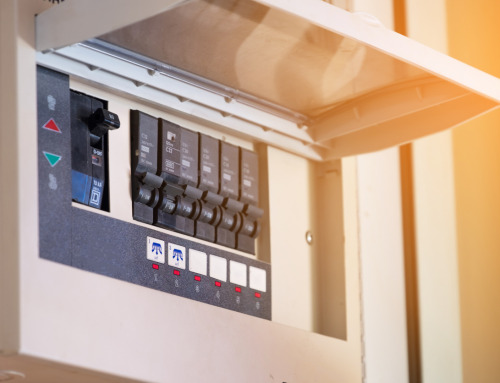Every home and business should use RCDs, but what does that mean?
In case you didn’t know, RCD stands for residual current device. It’s another way of saying safety switch.
We can’t stress enough about RCD protection (and how important it is). An RCD is regarded as a higher level of protection against electrocution when a person comes in contact with an electrical circuit. It’s been described as protecting people in a way that fuses and circuit breakers don’t.
RCDs are continually monitoring the electrical current. If someone comes in contact with a live wire or faulty appliance, the RCD detects that the flow of electricity has changed and is diverting into the ground, and quickly shuts off the electricity. RCDs save lives.
The different types of RCDs
Because of the different applications, there are many different types of RCDs you can have.
These include:
- RCCB – Residual current operated circuit breaker without overcurrent protection
- RCBO – Residual current operated circuit breaker with integral overcurrent protection
- CBR – Circuit breaker incorporating residual current protection
- RCM – Residual current monitor
- MRCD – Modular residual current device
- FCURCD – Fused connection unit incorporating a residual current device
- SRCD – Socket outlet incorporating a residual current device
- PRCD – Portable residual current device
Switchboard RCDs are commonly used because they monitor all electrical wiring connected to the switchboard.
Socket outlet RCDs are a ‘closer to the source’ RCD. They’re part of the standard socket outlet, providing monitoring and protection of that specific outlet and can include downstream protection of other outlets. These RCDs are commonly used in damp areas.

Portable RCDs are very important when you’re working with electrical equipment outside such as power tools and an electric lawnmower. These RCDs, being portable by design, can be moved from one outlet to another. You plug the RCD into the power outlet, and then connect your equipment into the plug at the end of the RCD extension cord.
Whatever type of RCD, it’s just as important for your business as it is for your home.
RCD protection (and how important it is) for your business
RCDs are vital for businesses. Every business has one or more switchboards and uses power outlets. Staff often plug and unplug equipment during the course of business operations.
As a business owner, you need to know that every person using the space is protected, and that includes every area where there are power outlets and appliances. This is especially important in damp areas such as lunch rooms, toilets, wet areas in factories.
The last thing you want is for you or a staff member to be electrocuted because the RCD wasn’t working, or there was no RCD installed in the first place. There’s a legal requirement for electrical safety, and the onus is on every business owner to ensure RCDs are in place.
When was the last time RCD’s were tested?
We’ve been looking at RCD protection (and how important it is). What’s equally important is testing RCDs regularly to ensure they’re working correctly.
If you have a socket outlet RCD or portable RCD these should be tested every 3 months.
Switchboard RCDs need testing every 6 months.
If you’re in business you simply don’t have time to worry about testing RCDs yourself. The best solution is to use professionals such as Jim’s Test & Tag. This gives you peace of mind, so you can get on with your work knowing that you, your employees, (and your customers in certain circumstances) are safe and protected.

Advantages of RCD protection (and how important it is)
More and more homes and businesses across New Zealand are using RCDs. This means more lives will be saved every year, and the number of injuries will be reduced thanks to this high level of protection.
With working RCDs, children are protected. For families at home with children, there can’t be a more important reason to have RCDs, especially for when children are in their bedrooms, the bathrooms and the kitchen. Wandering little fingers can find themselves in all sorts of dangers. This also applies to educational facilities, kindergartens and other businesses where there are children.
Working RCDs also protect property and help reduce the number of electrical fires.
There’s a great flow on effect from the high level protection offered through RCDs.
Jim’s Test and Tag team are the experts you can trust
When it comes to RCD protection (and how important it is) for businesses, there’s no better way to maintain safety, than with Jim’s Tag & Test team.
Our team uses certified equipment for RCD testing. This way you’ll always have peace of mind that your place of business is looked after by true professionals.
The tagging process is precise, thorough, and recorded in a way that can quickly and easily identify the person who last tested your appliances/equipment.
Jim’s Test & Tag team are always accountable for the safety status of each inspected item.
Your entire workplace can be inspected and tested, along with any appliance and equipment testing. There will be records of the test, and you’ll have no doubts as to when the next appliance or equipment testing is due.
For peace of mind, get expert test and tagging from the team you can rely on, Jim’s Test & Tag.
Contact us now or fill in the online form for a free quote.







